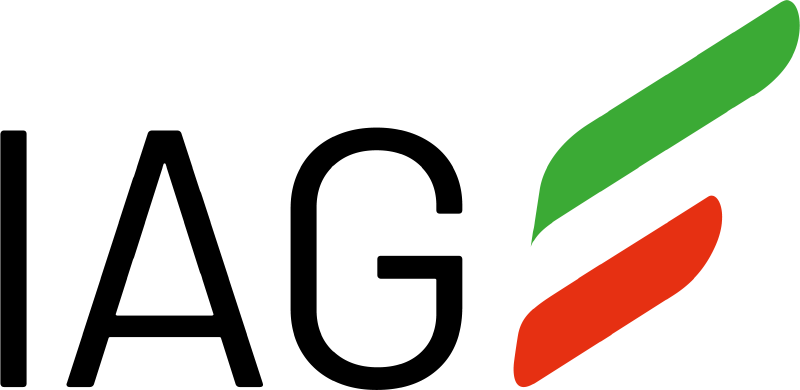by Francesco Baschieri
No, I never had a real plan. I experimented. I burned bridges and built new ones. I changed business models several times, felt lost, felt alone. But I never gave up. Tenacity, after all, is the hallmark of any entrepreneur. But I didn't sleep at night, I assure you. I was afraid of being left holding the bag, of having to deal with failure. Today, with the benefit of hindsight, I can say that this was not the case and that fortunately I did not give up, I did not give in. But at the time, I swear to you, it was not easy, and if I got where I am now, it is because I met people who stimulated me and protected me at the same time, people who helped me, supported me, spurred me, protected me. People with whom I created a unique relationship. One above all: Francesco Marini Clarelli. My history in IAG I owe it all - or almost all - to this extraordinary Champion.
But let's go in order. Let me introduce myself: I am Francesco Baschieri, Founder and CEO of Voxnest, a company that develops technologies for the distribution, measurement and monetization of digital audio and podcasts. I am a software engineer and an entrepreneur. My story begins with the founding of Spreaker, a leading platform for hosting podcasts and "spoken-word content." My partners and I were passionate about radio; the podcast market was in its infancy, still too complicated and unfamiliar. We thought that because of this, there could be a market. So, we started looking for capital to finance our project. And that's where we met IAG. The association was an old acquaintance, we had crossed paths in the past, but now I had a good idea to propose. In 2010, we did the first found raising together, raising 250,000 euros. It was a long process and lived with a lot of anxiety. It lasted 10 months, even though my company only had cash agility for 9 months. In short, we arrived at the end with the account in the red. However, we got there. Soon after, we realized that we had to change something in our business model. The company was billing poorly, investors were not happy. I remember one date, specifically: on October 15, 2010, the first part of the IAG shareholder transfer had arrived. We celebrated with a big party that, probably, if I went back, I would not do again. In fact, I certainly wouldn't do it again. I wouldn't throw a penny of that money away. Only three months later, investors were already breathing down my neck: they were pressing me, the company was not doing well, and the second tranche of investment was at risk. They asked me to go to the U.S., where I had decided to launch the business, to try to turn things around. I did. I was sure that was the right place to make our idea fly, although I still didn't really know how.
I admit it was not a good time, it was not easy, and we were not facilitated by the network. The reason is simple: the first Champion to whom we had been entrusted was not really interested in our project, a year later in fact he quit the association. I felt like a fish out of water. I still remember the retreats as moments of great anguish: it was as if I were back in my school days, in the role of an unprepared student called by the professor to the blackboard. With no possibility of help, no possibility of redemption. Then, Francesco Marini Clarelli came along. Since he became our new Champion, it was a different story. Not only was he present and involved, but he enjoyed the esteem and respect of the other investors, he was not afraid to make decisions and plead his cause, that is, our cause. Above all, he knew how to act as a filter, between us and the investors, he knew how to calm my anxieties and theirs. Because look, facing a strategy meeting having ten heads in front of you, ten super investors, is not easy. Throw in then, the inexperience of a young entrepreneur, which I was at the time, and you can easily understand why Champion is really everything.
Together, we combined skills, visions, experiences. We have empowered ourselves. We experimented. We went on a crazy ride, but in the end, we got to where we always wanted to be. We proposed ourselves no longer as a platform, but as a tool, and we realized that there were people willing to pay to have a monthly subscription. We went on like that for a few years, then we started working on the back end, finally on advertising. We found an American company that understood how to work well with advertising, and once we overcame the mistrust-even internal to our team-we merged with them. We acquired their expertise and put it into system. Things, finally, started to turn around. The turning point was in 2017.
How did we survive so many changes? I think the key has always been optimism. The entrepreneur is naturally inclined to believe that even the smallest attempt at improvement can generate momentous breakthroughs. This is almost never the case, but this is not a hindrance; on the contrary. The entrepreneur tries, the entrepreneur believes. And so it was for me, too, for us. With the same spirit we approached the exit. The first proposal came in 2019, we started the due diligence process, but then, at some point, the process stalled. The company disappeared. It was very trying. But even then, we went ahead, we continued with the stubbornness of those who want to prove that they can still do it. A year later, they called us back and we resumed the process. We worked with the lawyers even 20 hours a day, and here again the presence of Francesco Marini Clarelli was crucial. He introduced us to Mainardo De Nardis, an entrepreneur with great credibility in the neyworkese environment who joined our board and credited us in the eyes of the company we were negotiating with. We are talking about iHeartMedia, a Nasdaq-listed media operator and leading publisher of commercial podcasts globally, which already owned a minority stake in Voxnest and then bought out its entire capital. Today, in fact, Voxnets is one of the leading platforms for making and monetizing podcasts globally. The company turns each user into the creator of his or her own radio schedule, mixing and broadcasting content of all kinds, from music to news, sports to news. Using a unique technology, it combines the user experience of a radio station with the interaction typical of a social network. Customized radio programs can be listened to live and as podcasts on Spreaker's platform, on major social networks, on websites, blogs, and on iPhones. In short, Exit has changed everything. Organizationally, we had to redefine ourselves, figure out how much autonomy we would have, what our new goals would be. Today things are going well, we have found a good dimension and, personally, I have rediscovered the value of free time. Time to discover new passions, like playing guitar, and to think about the future. It amuses me to imagine how things might change in my industry between now and the next few years: the podcast market in the U.S. is very crowded, creators will move to new platforms, I imagine new pushes will come from independents, while publishers will also have to experiment. In Italy, on the other hand, penetration is still low, which gives us more opportunities.
Do you think I have told you everything? There is still something missing that makes my story, if possible, even more unique. Think about it: after spending 12 years trying to grow my company by being mentored and supported by experts, consultants, and business angels, today I find myself on the other side. I happened to mentor and in one case even invest in a startup in the United States. You know, just from that experience I understood a lot of things about what I had only judged from the outside before. I understood that being a business angel is not for everyone, that he certainly risks less than an entrepreneur and maybe even makes less effort, however, at the same time he has to have the cold blood to exercise the right detachment. And for a soul like mine, it is very hard in some situations to stand by and watch: the impulse to take the lead and put oneself in the entrepreneur's place to straighten out some of his behaviors is very strong. That is why, when I am asked to give advice to an aspiring entrepreneur, I say that if he is a true innovator, a person who has the sacred fire of enterprise within him, I have nothing to recommend. He will be able on his own to fall and get back up, he will not be frightened by the roller coaster; on the contrary, they will be an incentive to do even more. Rather, one piece of advice, I feel like giving to investors: here, when you are faced with people like this, let them do it. Remember that the plan is not everything, that the answers come from the mindset, from intuition, from the individual's ability to bring out the best in even the worst situations. In short, it is always said that it is more important to bet on people than on ideas. So, do it. Do it more. Trust and give space. The best opportunities come from the human mind, certainly not from an Excel file.








